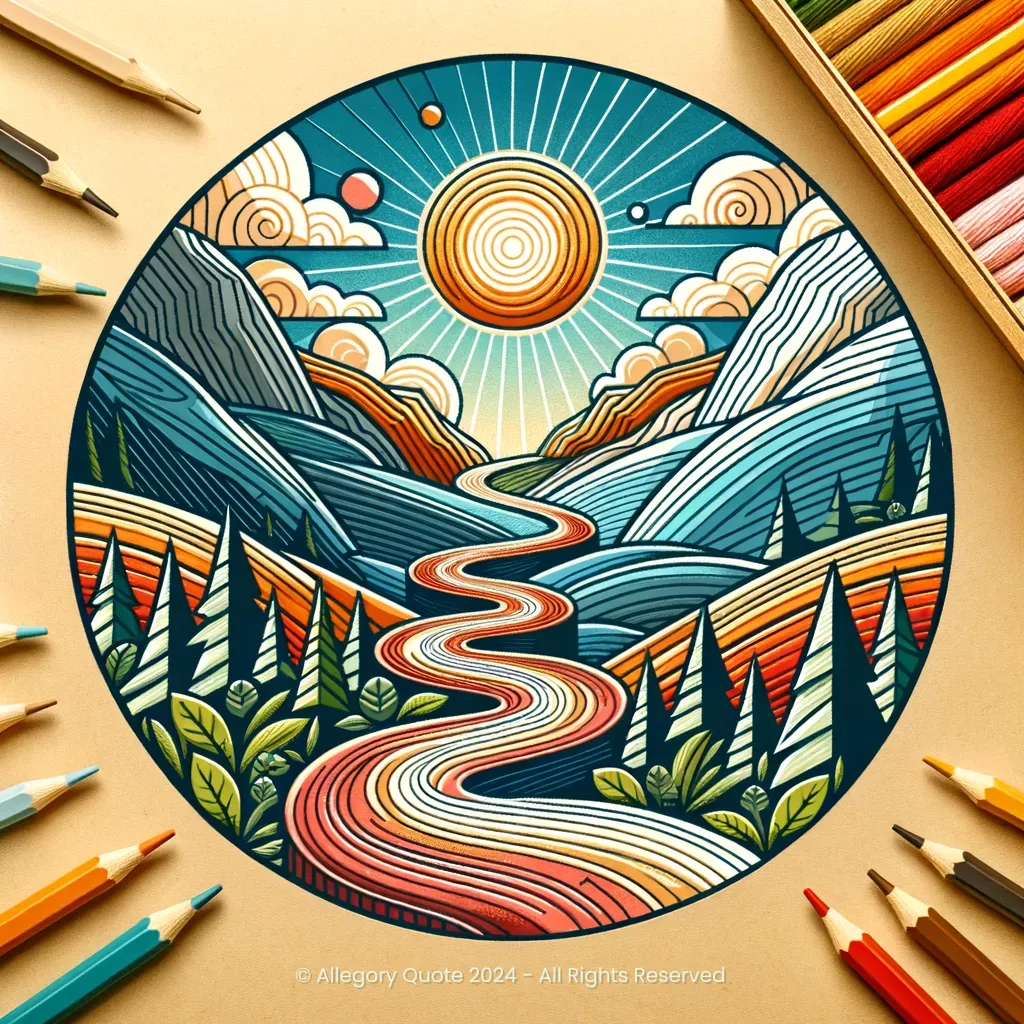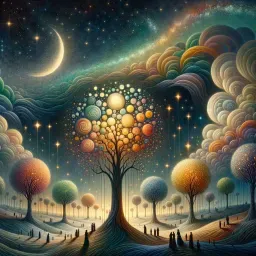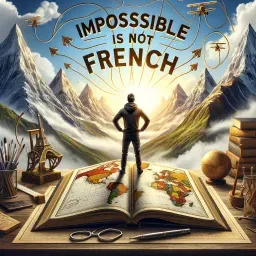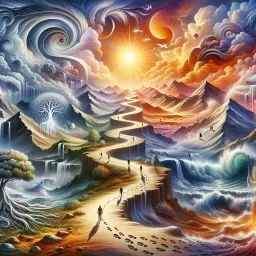Sometimes the right path is not the easiest one

0
0
0
0
- Meaning
- The meaning of the phrase speaks to the human experience of choice and challenge. It suggests that achieving worthwhile goals often requires navigating difficult paths or making hard decisions that might not offer immediate gratification or comfort. Philosophically, it aligns with the ideas of existentialists who believe in finding meaning through struggle.
- Allegory
- The winding path in the image represents the complex journey individuals face in life, with its ups and downs symbolizing challenges. The luminous horizon embodies hope and the ultimate reward of perseverance. Natural elements such as trees and mountains signify growth and resilience, while the warm color palette evokes feelings of comfort and inspiration, inviting viewers to reflect on their own life's journey.
- Applicability
- In personal life, individuals can reflect on this phrase when faced with tough decisions, such as pursuing a challenging career, opting for a healthier lifestyle, or maintaining integrity in complex situations. It encourages embracing the struggle that often accompanies growth and success.
- Impact
- This phrase has inspired countless individuals in personal development, often featured in motivational contexts, books, seminars, and speeches. It encourages resilience and determination, promoting the idea that growth often involves discomfort and challenges.
- Historical Context
- The notion that the right choices are not always the easiest has been a common theme throughout history, often seen in literature and philosophy. This sentiment likely emerged more prominently in the 20th century with the rise of self-help movements, focusing on personal development and resilience.
- Criticisms
- Critics might argue that this phrase can contribute to a harmful mindset that glorifies struggle, potentially leading individuals to pursue unnecessarily hard paths or ignore the strengths of choosing easier alternatives when appropriate. Some may argue it undermines the validity of joy and ease in decision-making.
- Variations
- Variations of this phrase can be found in different cultures, emphasizing the universal acceptance of the idea that difficult paths can lead to fulfillment. For example, in Eastern philosophies, concepts like "Suffering leads to enlightenment" reflect similar sentiments.
-

When life gets you down, you know what you gotta do? Just keep swimming.
-

Even miracles take a little time.
-

No matter how your heart is grieving, if you keep on believing, the dream that you wish will come true.
-

You don’t have time to be timid. You must be bold and daring!
-

I’m not crazy, my reality is just different than yours.
-

You control your destiny — you don’t need magic to do it.
-

Impossible is not French.
-

Always let your conscience be your guide.
-

You’re only a fool if you give up.
-

Peace and justice are two sides of the same coin.
-

You must be bold, daring.
-

There’s no place like home.
No Comments